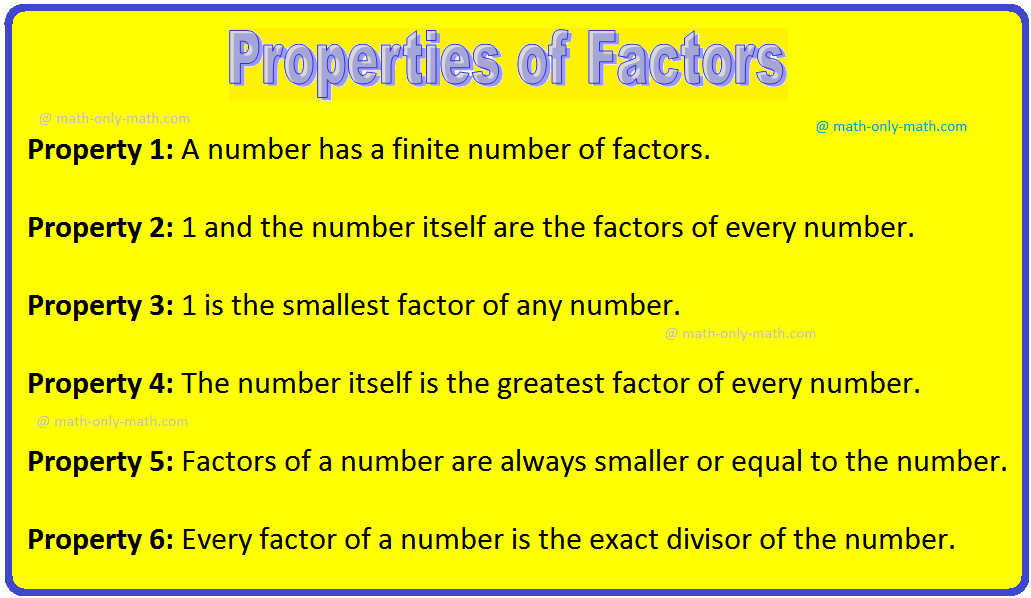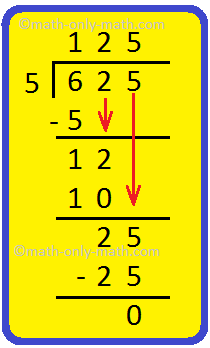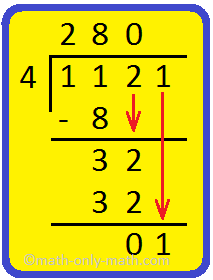Subscribe to our ▶️ YouTube channel 🔴 for the latest videos, updates, and tips.
Properties of Factors
The properties of factors are discussed step by step according to its property.
Property (1):
Every whole number is the product of 1 and itself so
(i) Each number is a factor of itself.
19 x 1 = 19,
So, 19 is the factor of 19.
(ii) 1 is the factor of every number.
We know that a number multiplied by 1 is the number itself. So, 1 is a factor of every number.
For example
21 ÷ 1 = 21. So, 1 is the factor of 21,
96 ÷ 1 = 96, So, 1 is a factor of 96.
31 x 1 = 31, So, 1 is the factor of 31.
Property (2):
Every number is a factor of zero (0)
As, 7 x 0 = 0,
17 x 0 = 0,
93 x 0 = 0
So, 7, 17, 93, ……, etc., are the factors of 0.
Property (3):
1 is the smallest factor of every number.
1 is the smallest factor of a multiple and the greatest factor of a multiple is the multiple itself.
A number is a factor of itself. SO, a number itself is its own greatest factor. For example 73 ÷ 1 = 73 so, 73 and 1 are the factors. 73 is the greatest factors.
Property (4):
Every number other than 1 has at least two factors, namely the number itself and 1.
We know that 1 and the number itself are always the factors of every number. This means that every number has at least 2 factors.
Therefore, the properties of factors are explained above so, that student can understand each property.
Properties of Factors
Property 1: A number has a finite number of factors.
Property 2: 1 and the number itself are the factors of every number.
Property 3: 1 is the smallest factor of any number.
Property 4: The number itself is the greatest factor of every number.
Property 5: Factors of a number are always smaller or equal to the number.
Property 6: Every factor of a number is the exact divisor of the number.
To find that whether a number is a factor of another number, we divide the bigger number by the smaller number. If the remainder is zero, we say that the divisor is a factor of the dividend.
For example:
1. Is 5 a factor of 625?
Here, 5 divides 625 exactly. So 5 is a factor of 625.
2. Is 4 a factor of 1121?
Here, 4 does not divide 1121 exactly. So 4 is not a factor of 1121.
Related Concept
● Factors and Multiples by using Multiplication Facts
● Factors and Multiples by using Division Facts
● Factors
● Even and Odd Numbers Between 1 and 100
● Examples on Even and Odd Numbers
4th Grade Math Activities
From Properties of Factors to HOME PAGE
Didn't find what you were looking for? Or want to know more information about Math Only Math. Use this Google Search to find what you need.





New! Comments
Have your say about what you just read! Leave me a comment in the box below. Ask a Question or Answer a Question.